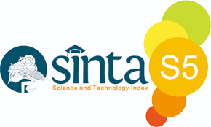Beyond Physical Limits: Exploring Inclusive Islamic Education for Children with Physical Disabilities at SLBN 1 Sleman, Indonesia
Abstract
Education is a universal right, extending crucially to children with special needs. This study investigates the characteristics and development of Islamic education services for children with physical disabilities at SLB Negeri 1 Sleman, Yogyakarta. The research aims to understand the implementation of teaching methodologies currently employed at the school. Utilizing a qualitative case study approach, data was collected through observation, interviews, and documentation, followed by rigorous analysis to draw comprehensive conclusions. The findings reveal that students at SLB Negeri 1 Sleman, Yogyakarta, exhibit distinct individual differences and characteristics. The school has effectively provided various educational services and a commendable infrastructure. While educators at the institution have encountered challenges in teaching children with disabilities, they have also successfully identified and implemented solutions. Evaluation and assessment practices primarily involve individualized assessments. Notably, the learning process has yielded instances where educators found inspiration, and students, in turn, demonstrated increased motivation and enthusiasm for learning Islamic Religious Education (PAI).
References
Al-Nashshar, M. (2023). Universal Ethical Theory and The Harmonious Human Community in Hans Küng’s “Global Ethics Project.” In J. Zdanowski & A. Ziaka (Eds.), The Declaration of His Majesty Sultan Qaboos: Towards a Harmonious Human Community (pp. 197–211). Georg Olms Verlag.
Astati. (2025). Anak Tunadaksa, karakteristik dan Model Pendidikan. Pendidikan Luar Biasa-UPI Bandung, 1(1), 1–10. https://doi.org/10.21043/thufula.v2i1.4232
Faridah, I. (2024). Implementasi Pendidikan Islam pada Anak Tunadaksa Kelas VII di Yayasan Pendidikan Islam. Kusuma Bangsa.
González-Moreira, A., Ferreira, C., & Vidal, J. (2021). Comparative Analysis of the Transition from Early Childhood Education to Primary Education: Factors Affecting Continuity between Stages . European Journal of Educational Research, 10(1), 441–454. https://doi.org/10.12973/eu-jer.10.1.441
Handajani, S. (2016). Modul Guru Pembelajaran SLB Tunadaksa Kelompok Kompetensi B. In Pptk Dan Plb Bandung.
Handajani, S. (2024). Modul Guru Pembelajaran SLB Tunadaksa Kelompok Kompetensi B. Kusuma Bangsa.
Irin, A., Shobron, S., & Aly, A. (2025). Implementasi Pembelajaran Pendidikan AgamaIslam pada Siswa Tuna Daksa Sekolah Luar Biasa Bagian D Yayasan Pembinaan Anak Cacat SurakartaTahun 2017/2018. Universitas Muhammadiyah Surakarta.
Khoirin Nida, F. L. (2018). Membangun Konsep Diri Bagi Anak Berkebutuhan Khusus. ThufuLA: Jurnal Inovasi Pendidikan Guru Raudhatul Athfal, 2(1), 45. https://doi.org/10.21043/thufula.v2i1.4265
Konza, D. (2025). Inclusion of Students with Disabilities in New Times: Responding to the Challenge. Routledge.
Kristiyanto, R., Muhaimin, A. N., Aryanto, A., Salsabila, F., & Husna, D. (2025). Metode Pembelajaran PAI untuk Siswa Tunadaksa. ANWARUL Jurnal Pendidikan Dan Dakwak, 3(1), 42–50. https://doi.org/10.21043/thufula.v2i1.2345
Lestari, A., Sabila, R., Husna, D., Anendi, Y., & Anshori, A. A. (2024). Pengaruh Orang Tua, Guru, dan Lingkungan terhadap Tuna Daksa dalam Spiritual Quotient. Journal of Educational Innovation and Public Health, 1(1), 64–75. https://doi.org/10.21043/thufula.v2i1.9874
Miles, M., & Huberman, A. M. (2014). Qualitative Data Analysis. Sage.
Miles, M., Huberman, M., & Saldana, J. (2024). Qualitative Data Analysis: A Methods Sourcebook. Sage Publication.
Moleong, L. (2014). Metode Penelitian Kuantitatif Kualitatif. Bandung: PT. Remaja Rosdakarya.
Nida, K. F. L. (2024). Membangun Konsep Diri bagi Anak Berkebutuhan Khusus. ThufuLA: Jurnal Inovasi Pendidikan Guru Raudhatul Athfal, 2(1), 45. https://doi.org/10.21043/thufula.v2i1.4265
Priya, A. (2021). Case Study Methodology of Qualitative Research: Key Attributes and Navigating the Conundrums in Its Application. Sociological Bulletin, 70(1), 94–110. https://doi.org/10.1177/0038022920970318
Putra, P. H., Herningrum, I., & Alfian, M. (2021). Pendidikan Islam untuk Anak Berkebutuhan Khusus (Kajian tentang Konsep, Tanggung Jawab dan Strategi Implementasinya). Fitrah: Journal of Islamic Education, 2(1), 80–95. https://doi.org/10.53802/fitrah.v2i1.55
Ramadhana, R. N. (2024). Tantangan Pendidikan Inklusi Dalam Mendidik Anak Berkebutuhan Khusus. In Program Studi Pendidikan Bahasa Inggris Universitas Lambung Mangkurat (pp. 1–10). Lambung Mangkurat Press.
Seviarica, H. P., Akhmad, F., Berliyana, A. S., Atmojo, S. T., & Fauzi, R. (2023). Karakteristik dan Pengembangan Pelayanan Pendidikan Islam Anak Tunadaksa. Anwarul, 1(1), 102–120. https://doi.org/10.58578/anwarul.v1i1.48
Siburian, A. M., Siahaan, R., Turnip, H., Pendidkan, F. I., Agama, I., & Tarutung, K. N. (2023). Implementasi Metode Pembelajaran Terpadu pada Siswa Berkebutuhan Khusus di SLB (Sekolah Luar Biasa. Jurnal Ilmiah Multidisiplin, 1(1), 229–233.
Sotillos, S. B. (2022). The Eclipse of the Soul and the Rise of the Ecological Crisis. Spirituality Studies, 8(2), 34–55.
Viphindrartin, S., & Bawono, S. (2021). Education, Health and Technology in Indonesia’s Economic Recovery Efforts Based on Three Human Performance Theory. IJEBD (International Journal of Entrepreneurship and Business Development), 4(5). https://doi.org/10.29138/ijebd.v4i5.1495
Zakiyah, U. L., Mahmudah, S., & Aisah, S. (2022). Pendidikan Akhlak Pada Anak Tuna Daksa di SDN Mojoroto 1 Kota Kediri. Jurnal Pendidikan Dan Konseling (JPDK), 4(4 SE-Articles), 664–671.














